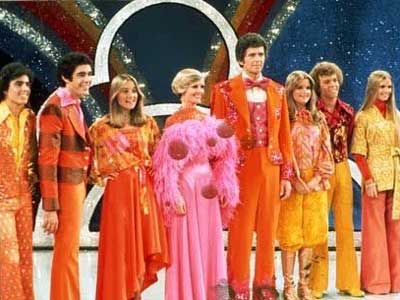So, let’s pretend you have a radio station.
And that radio station has a ratings challenge, a fundraising challenge, or a challenge in developing loyal listeners.
Where do you begin in solving your problem?
So, let’s pretend you have a radio station.
And that radio station has a ratings challenge, a fundraising challenge, or a challenge in developing loyal listeners.
Where do you begin in solving your problem?
A morning show host I work with recently found cause to read a poem on the air. While he meant well, it really stalled out the momentum of the show, and basically just sounded less personal. Here’s the right technique to use:
Paraphrase it, using your own words to frame the subject, then only directly quote a very SHORT quote or passage from whatever it is you’re bringing to the table – whether it’s a poem, like in this case, or an article about something.
We’ve all thought it. Sometimes we even laugh about it when we see an old photo. The hair. The clothes. The car. The things we thought were important. Back then.

Consider what your perspective would be today if you had spent your career exclusively at your very first radio station. You would not have the influences of the greatest mentors in your career, and you wouldn’t have the big picture perspective learned from seeing many different stations and perhaps many different formats.
Here’s something I know now that I didn’t know then;
On Friday, October 13th 2017, Leta Hopwood passed away two months to the day after her 92nd birthday.
Hopwood was her maiden name. She was my mother. She taught me to read when I was three years old. (By the time I entered 1st grade, I was reading at 7th grade level.)
She taught me to sing harmony when I was nine, as we drove from Shreveport, Louisiana to Colorado Springs after my dad was drafted into the Army. (I later sang in a very popular band, and have sung on dozens of jingles that you might have heard.)
On last week’s finger lickin’ Frost Advisory I pontificated how it’s tempting to think that what we do defines who we are. The carpenter is defined by his hammer; the accountant by his calculator, the radio station by its 40 minute music sweeps, and the semi-professional public address announcer by his ever so manly voice.
Simon Sinek suggests…
“People don’t buy what you do, they buy why you do it, and what you do serves as tangible proof of why you do it.”
Counter-intuitive perhaps, but let’s dig deeper.
Continue reading
Millennial Overspeak is a new dialect. Not every single person in that age group uses it, of course, but it’s an easy (albeit cheap shot) reference for unnecessary glitz, so it’s become a hard-and-fast impression.
Phrases such as “I’m SO going to do that,” or describing something as “Unbelievably, spectacularly good” is overkill. And like everything served up too often, you actually LOSE impact. So the words you’re choosing to make something “bigger” or more “dramatic” usually just make whatever you’re talking about come across as pompous, overstated, or simply trying too hard. These are qualities that push the listener away, rather than bring him or her closer to you.
Let’s try to make our words count. “He was dead” doesn’t need an adverb or adjective. “He was SO dead” doesn’t make it more expressive; it just makes you sound like you have to expand everything in order to feel important. Eww.
It’s tempting, isn’t it?
It’s tempting to think that what we do defines who we are. The carpenter is defined by his hammer; the accountant by his calculator, the radio station by its 40 minute music sweeps.

We’re eager to define ourselves by a hallway full of gold records and awards. I hate to break it to you, but your listeners don’t care.
Listeners, even if they’re not consciously thinking about it, value their TIME over anything else.
That’s the challenge, and why you really need to work at getting better, smoother, subtler, more animated when necessary, a great voice actor, a friend – the one they look FORWARD to being with.
Ask yourself whether there are “dead spots” in your show, or breaks where you kind of put it on autopilot. If you’re wasting the listener’s time on any sort of consistent basis, he or she is going to stop giving it to you.
It’s not obvious to warn someone about the obvious. But that’s the point.
“Don’t believe everything you think.”
~Andy Andrews
Successful principles of business, leadership, ministry, or even programming aren’t obvious. They are the exception. Otherwise, all businesses would be successful, there would be no leadership challenges, churches would be full every week, all radio stations would have high ratings and we’d all have dated the prettiest girl in town.
If we want to appeal to everyone we simply need to play everything. What could be more obvious?